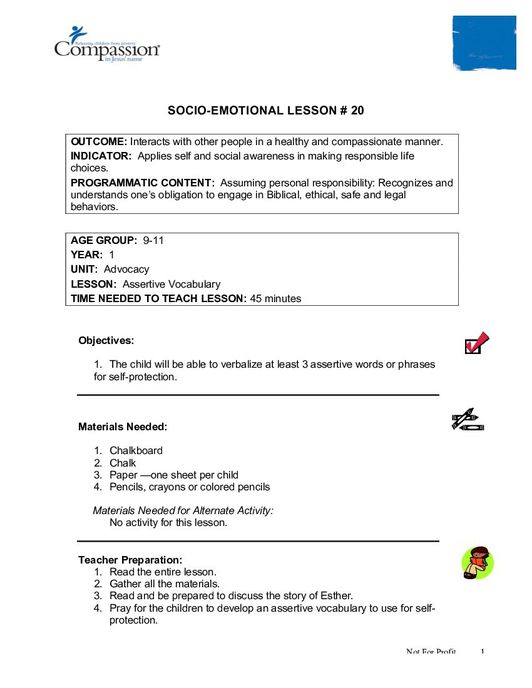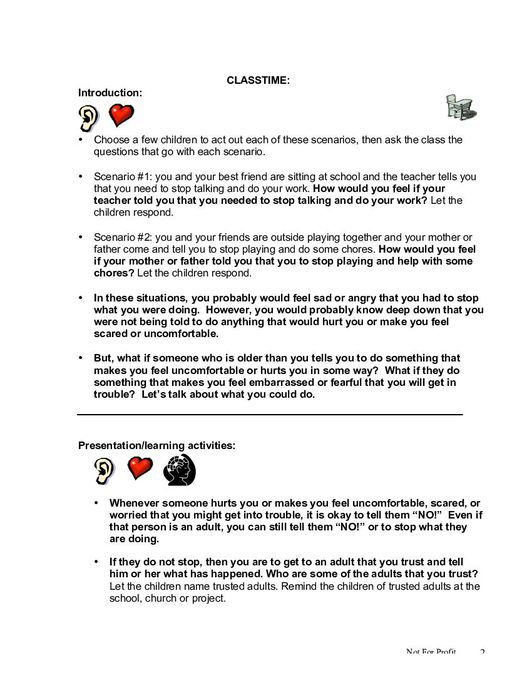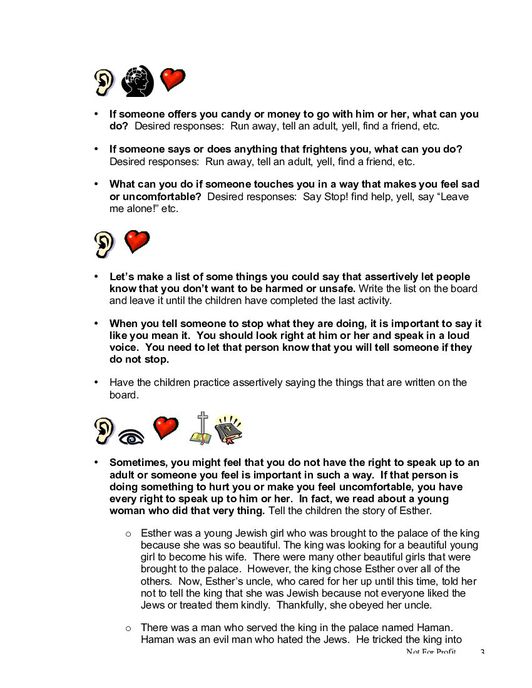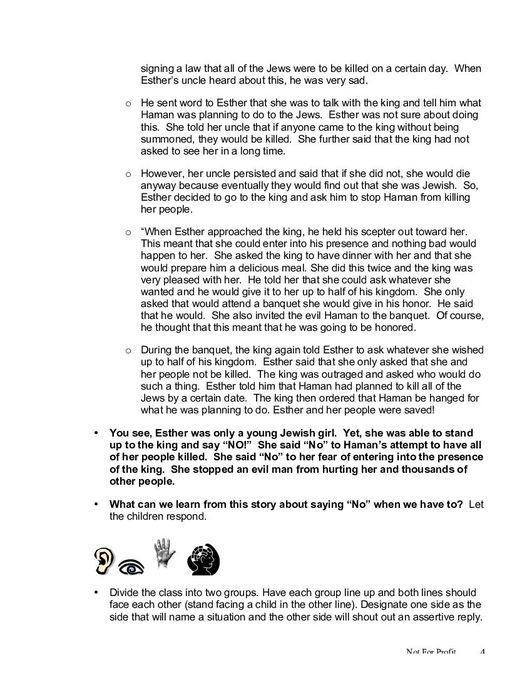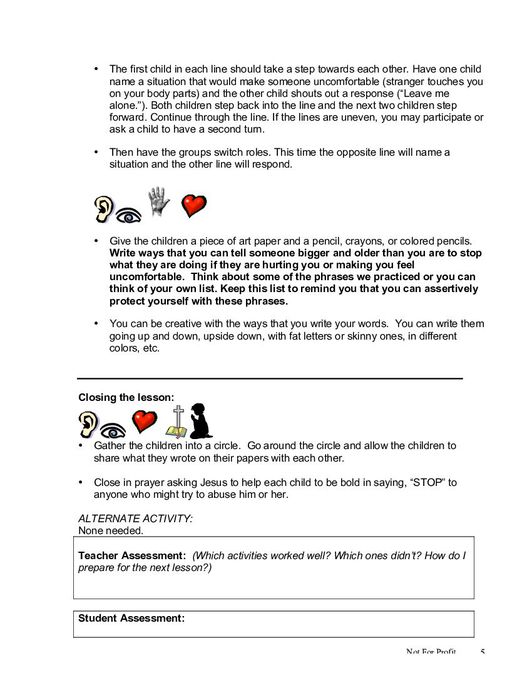Assertive Vocabulary
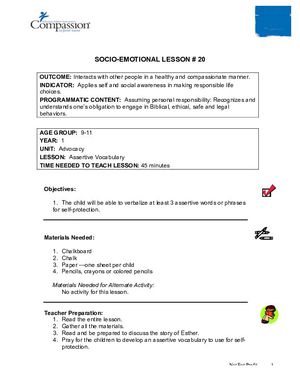
Preview
Login Required
You must be a member of the ForChildren.com community to download resources. Click the buttons below to sign in or sign up!
| Category | Socio-Emotional Development |
| Copyright Owner and Year | Compassion International , 2015 |
The lesson “Assertive Vocabulary” teaches children more about personal responsibility and the healthy development of Godly character through appropriate communication. Children will learn about positive and assertive verbalization for self-protection and practice at least three assertive phrases to communicate self-protection in situations when it may be necessary. The lesson includes guided instructions for the teacher, including preparation, a script, and suggested activities to facilitate further learning in a fun and interactive manner. This lesson is designed for children between 9-11 years, and is the 20th lesson in the 1st year Core Curriculum Set and part of the “Advocacy” unit.
Related Documents
-
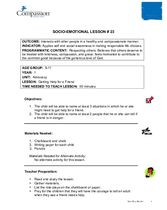
Getting Help for a Friend
The lesson “Getting Help for a Friend” teaches children more about healthy relationship development and both social and self-awareness in… -
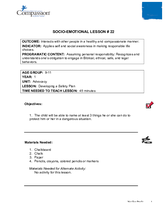
Developing a Safety Plan
The lesson “Developing a Safety Plan” teaches children about the importance of assuming personal responsibility in order to maintain and … -
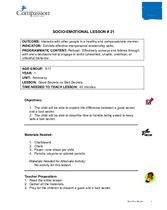
Good Secrets vs. Bad Secrets
The lesson “Good Secrets vs. Bad Secrets” teaches children more about self and social awareness, specifically about refusal and how to ef… -
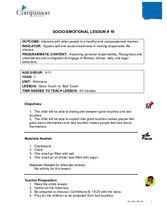
Good Touch vs. Bad Touch
The lesson “Good Touch vs. Bad Touch” teaches children to assume personal responsibility and the obligation to engage in Biblical and saf… -
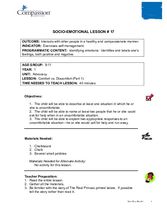
Comfort vs. Discomfort (Part 1)
The lesson “Comfort vs. Discomfort (Part 1)” teaches children about identifying the feelings of comfort and discomfort in a situation and… -
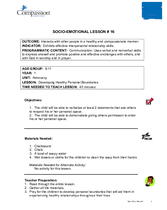
Developing Healthy Personal Boundaries
The lesson “Developing Healthy Personal Boundaries” teaches children about healthy and compassionate interpersonal relationships and how … -
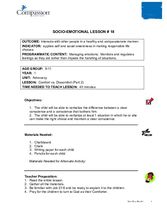
Comfort vs. Discomfort (Part 2)
The lesson “Comfort vs. Discomfort (Part 2)” teaches children about self and social awareness, the managing of emotions and feelings, and… -
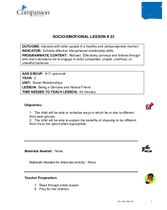
Being a Genuine and Honest Friend
The lesson “Being a Genuine and Honest Friend” teaches children more about healthy relationship development and both social and self-awareness in dev… -
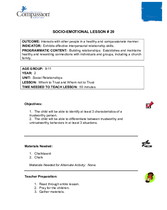
Whom to Trust and Whom Not to Trust
The lesson “Whom to Trust and Whom Not to Trust” teaches children more about personal responsibility and interpersonal relationships. The children wi… -
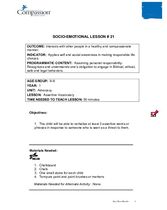
Assertive Vocabulary
The lesson “Assertive Vocabulary” teaches children the ability to verbalize at least three assertive words or phrases in response to some…

